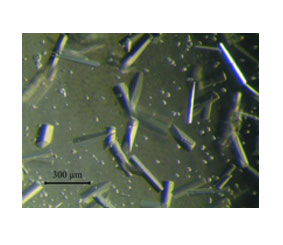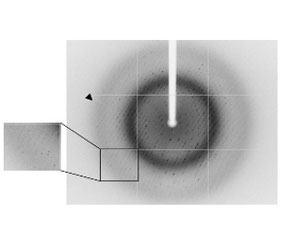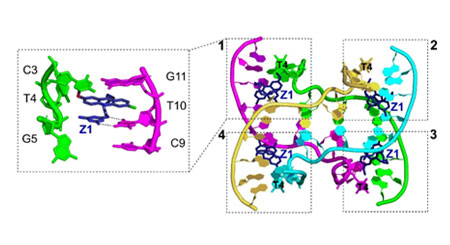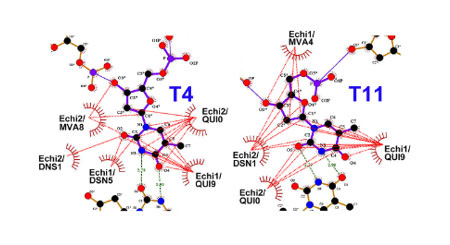TOOL BOX

Structural biology is a field of science that focuses on studying the
three-dimensional structure of biological molecules, such as proteins,
nucleic acids, and carbohydrates, and their interactions with each other.
Structural biologists use a range of experimental techniques, including
X-ray crystallography, NMR spectroscopy, and cryo-electron microscopy,
to determine the atomic and molecular structures of these molecules.
three-dimensional structure of biological molecules, such as proteins,
nucleic acids, and carbohydrates, and their interactions with each other.
Structural biologists use a range of experimental techniques, including
X-ray crystallography, NMR spectroscopy, and cryo-electron microscopy,
to determine the atomic and molecular structures of these molecules.
The study of structural biology is important because the
structure of a molecule is closely linked to its function. By
understanding the structure of a molecule, scientists can
gain insights into how it works and interacts with other
molecules in a biological system. This knowledge can be
used to develop new drugs and therapies, as well as to
design new proteins and other biomolecules with specific
functions.
structure of a molecule is closely linked to its function. By
understanding the structure of a molecule, scientists can
gain insights into how it works and interacts with other
molecules in a biological system. This knowledge can be
used to develop new drugs and therapies, as well as to
design new proteins and other biomolecules with specific
functions.


Reference:
National
Institute of
General Medical
Sciences-Structural Biology
National
Institute of
General Medical
Sciences-Structural Biology
Structural biology is an interdisciplinary field that combines techniques and methods from biology, chemistry, physics, and computer science. In recent years, advances in technology and computing have led to significant progress in the field, allowing scientists to study larger and more complex biological molecules than ever before.


Reference:
National
Institute of
General Medical
Sciences-Structural Biology
National
Institute of
General Medical
Sciences-Structural Biology
Structural biology has many applications in a wide range of fields, including:
Agriculture
Structural biology can be used to understand the structure and function of plant and animal proteins, which can help improve crop yields and develop new methods for pest control. Biophysics
Structural biology can be used to study the physical properties of biological molecules, such as their stability and flexibility, which can help researchers understand how they function in biological systems. Biotechnology
Structural biology can be used to engineer proteins and other biomolecules with new functions, such as enzymes with improved catalytic activity or antibodies with increased specificity. Drug discovery
Structural biology can be used to identify and design small molecules that bind to specific proteins, which can be used as drugs to treat diseases. Neuroscience
Structural biology can be used to study the structure and function of proteins and other molecules involved in the nervous system, which can help researchers understand how the brain works and develop new treatments for neurological diseases. Structural genomics
Structural biology can be used to determine the three-dimensional structures of proteins on a large scale, which can provide insights into the function of genes and help identify new drug targets. These are just a few examples of the many applications of structural biology.
Overall,
structural biology plays a critical role in advancing our understanding of the molecular basis of
life and has numerous practical applications in medicine, biotechnology, and other fields.
Overall,
structural biology plays a critical role in advancing our understanding of the molecular basis of
life and has numerous practical applications in medicine, biotechnology, and other fields.
Prof. Ming-Hon Hou / 侯明宏 老師
Drug Design and Chemical Biology Core Lab
藥物設計及化學生物核心實驗室
- Office: 04-22840338#7011
- Lab:04-22840338#7121
- E-mail: mhho@dragon.nchu.edu.tw
- E-mail: mhho712lab@gmail.com
- Address:
Institute of Genomics and Bioinformatics,
National Chung Hsing University
中興大學基因體暨生物資訊學研究所
Dr. Jyung-Hurng Liu / 劉俊宏 老師
Structural Bioinformatics Core Lab
結構生物資訊核心實驗室
- Office:04-2284-0338#7181
- Lab:04-2284-0338#7131
- E-mail:jhliu@nchu.edu.tw
- Address:
Institute of Genomics and Bioinformatics,
National Chung Hsing University
中興大學基因體暨生物資訊學研究所